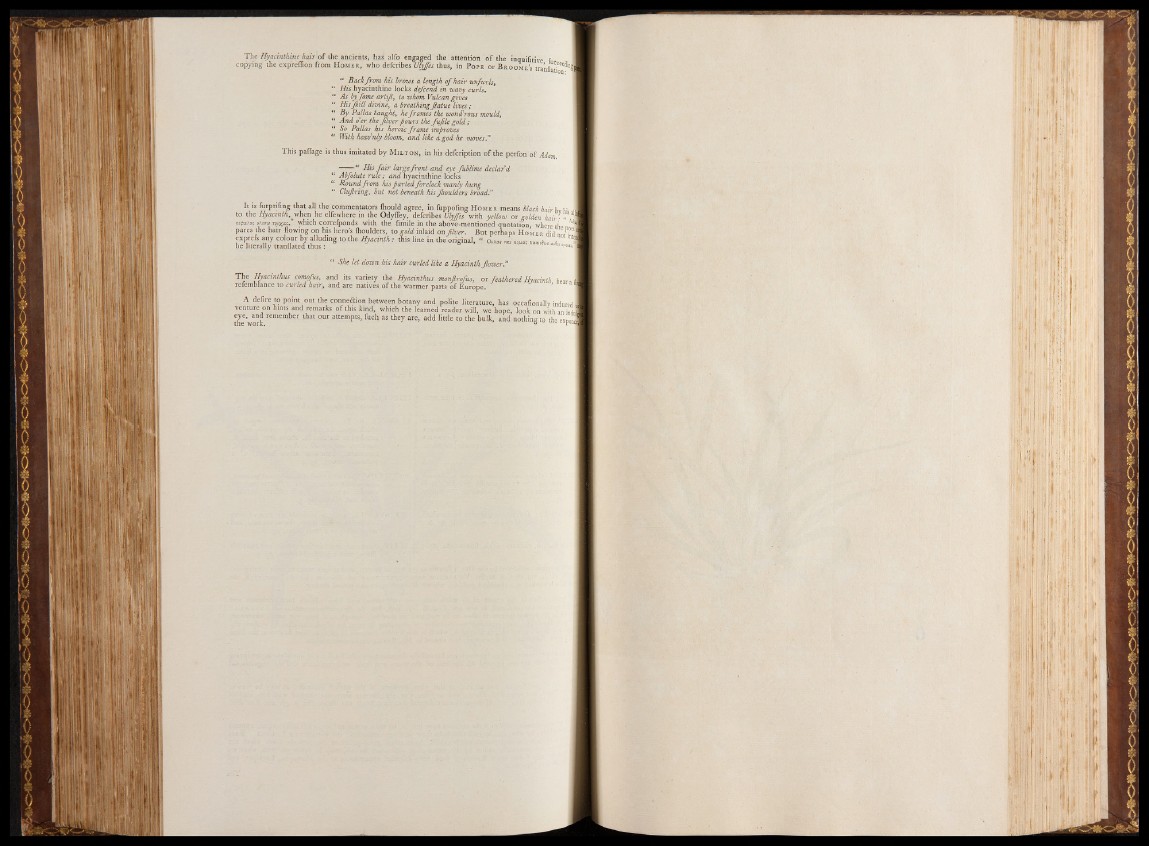
T he Hyacinthine hair o f the ancients, has alfo engaged the attention o f the inquifitive f I
copying the expreflion from H omer , who defcribes Ulyffes thus, in Pope or B r o om e s t r a n l l a t^ i
“ Back from his brows a length of hair unfurls,
“ His hyacinthine locks defcend in wavy curls.
“ As by fome artiß, to whom Vulcan gives
" His f i l l divine, a breathingftatue lives ;
“ By Pallas taught, he frames the wond’rous mould,
“ And o’er the five r pours the fu f le gold;
11 So Pallas his heroic frame improves
“ With heav’nly bloom, and like a god he moves."
This paflage is thus imitated by M il t o n , in his defcription of the perfon of Adam
----- “ His fa ir large front and eye fublime declar’d
“ Abfolute rule; and hyacinthine locks
“ Round from his parted forelock manly hung
“ Clufiring, but not beneath hisfhoulders broad"
It is furprifing that all the commentators fhould agree, in fuppofing H omer means black hair hvW* 1 to the Hyacinth, hen he elfewhere in the Odyffey, defcribes Ulyjfes with yellow or golden /WV-« |
oterco Tp<Xx(, ’ which correfponds with the fimile in the above-mentioned quotation, where the n *
pares the hair flowing on his hero’s fhoulders, to gold inlaid on f i v e r . But perhaps H omer did
expreft any colour by alluding to the Hyacinth: this line in the original, 9 o„a„ W , “1 be literally tranflated thus :
“ She let down his hair curled like a Hyacinth fiower"
The Hyacinthus comofus, and its variety the Hyacinthus monfrofus, or feathered Hyacinth, bean ft
relemblance to curled hair, and are natives, of the warmer parts of Europe.
A defire to point out the conneffion between botany and polite literature, has occafionallv indnrwl
venture on hints and remarks ó f this kind, which the learned reader will, we hope, look on with an Mil
eye, and remember that our attempts, fuel, as they are, add little to die bulk, and nothing to the S i